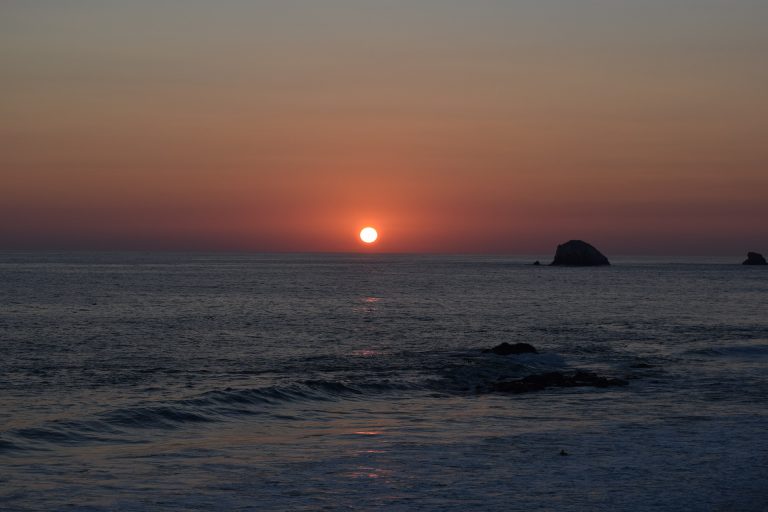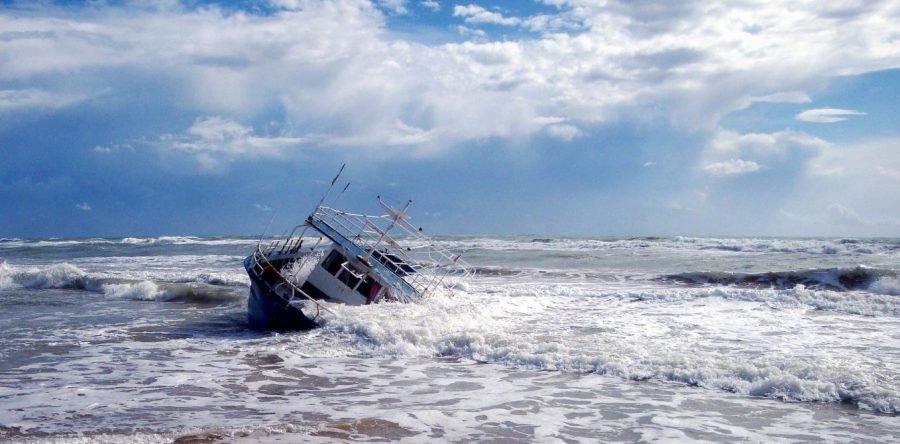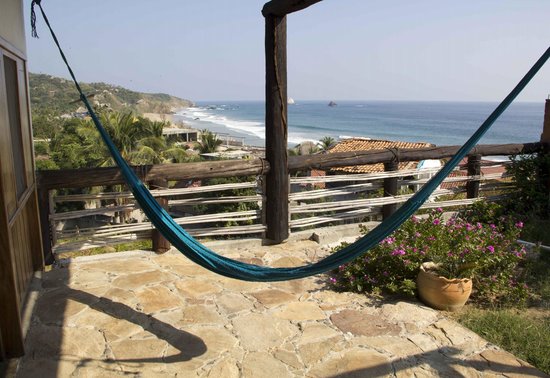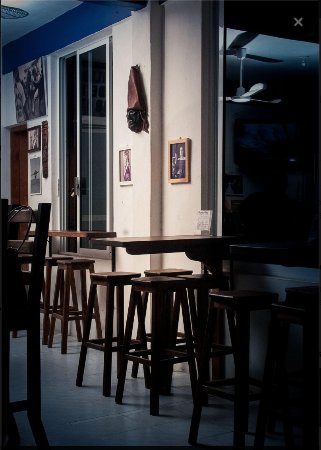
City planners could learn a lot from how they do things in Zipolite.
Photo By Bruce Rushton
Having recently returned from south of the border, I’ve found that there is a lot we can learn from Mexico.
The president wants to build a wall to keep out myriad deviants who would destroy our way of life. Whether a wall is a good idea is a matter of opinion, I suppose – even smart folks I know insist that a health care system based on the profit motive can work – but it is, at least, an idea. Beyond ideas, there are facts, and it is, absolutely, a fact that you cannot drink Mexican water. It also is a fact that the roads suck. Air conditioning costs extra. And there often are bugs, unless the proprietor of wherever you’re staying sprays the place with poison, which probably contributes to global warming and a lot of other bad things. Plus, they speak Spanish, which seems a poor choice. Convert to English and, voila, you become Canada’s cousin, just a misunderstood country in need of a few grants to get rid of the bugs and fix the water and throw down some asphalt.
Having credit card points to burn and an urge to de-Springfield in February, I needed to go somewhere. Cuba was tempting but complicated. What had seemed easy became difficult after the Trump administration last fall instituted new rules, and Cuba, rules aside, didn’t, upon scrutiny, sound like such a great place. No fishing. Bad restaurants. Folks so poor that those fortunate enough to own cars lock windshield wiper blades in trunks until it starts raining so as to prevent theft.
With a goal of affordable and tropical, I figured on Mexico and ended up in Zipolite through sheer fortune. A flight to Huatulco, a town about as far from Zipolite as Springfield is from Bloomington, departed the Mexico City airport just 90 minutes after my arrival, and so that’s the flight I booked.
There is nothing to do in Zipolite, a town on the edge of the Pacific that is home to 1,000 or so people. Owing to fierce undertows, you can’t go swimming – some say the town’s name, loosely translated, means “beach of death” in some kind of native tongue. There are no colorful markets where merchants ply foodstuffs, clothing and other wares aimed equally at locals and tourists, who might have difficulty blowing money on souvenirs given the paucity of ATMs. Hot water is rare. I was told there is a police department, but I never saw a cop. Someone told me there are two officers who take taxis when they need to be somewhere.
I paid $37 a night for a studio in a beachside condo building – there were cheaper places, but none had air conditioning. Despite the constant roar of the ocean, I slept fine. The closest restaurant served the best ceviche I have ever encountered, and I have encountered a lot. When she brought sushi out, the owner of another place apologetically asked me to pay immediately, because she had an errand to run. Then she left me, a complete stranger, alone in her place. The maguro was divine.
There is no getting around this part: There are naked people in Zipolite. Lots of them. The beach is reputedly the only one in Mexico where it is legal to frolic sans clothing, and perhaps two or three in 10 of the people one encounters on the beach are nude, some more splendidly than others. And so I spent a lot of time looking at naked people, then going back to my book (I read Walden, but not cover to cover), and ordering the occasional mojito.
Others might have difficulty, but, for me, doing nothing comes easy, although it can be harder than it looks. Which brings us to the Y block, which, I think, could benefit by being looked at from a Zipolite perspective.
There is a clamoring for the city to do…something! And so I was perturbed upon my return to Springfield to see heavy equipment on the block, as if something were about to happen. Turns out that earthmovers are there to improve sewers, and spiffy up Jackson Street not muck with a blank canvas we seem hell-bent on transforming into something on the notion that doing something is better than doing nothing.
Between sewers and streetscapes and land acquisition and building demolition and a $1 million subsidy for an adjacent plaza now under construction by the Illinois Association of Realtors, the city already is on the hook for more than $4.5 million to improve the Y block and environs. Ideas for the block itself have ranged from apartments to a mix of residential and commercial space to the mayor’s preferred, if not embraced, plan for a fountain-filled park, which is, I suppose, better than a prior scheme involving a giant theater screen upon which notable state government hearings could be projected.
The reason nothing has been accomplished is that nothing is obvious, let alone cheap. And so the Y block was allowed to decay into a beautiful emerald rectangle, square in the middle of a mostly concrete, and largely vacant, downtown. Let it remain so, until something better and obvious comes along. Wait, at least, until the adjacent plaza is done – we should see what that looks like before figuring out what comes next. We could do worse than a great lawn where folks could gather for art shows, picnics, Frisbee, pickup soccer games or demonstrations against the governor, whose mansion is across the street.
Hang loose, and good things might happen all by themselves – with or without naked people.















